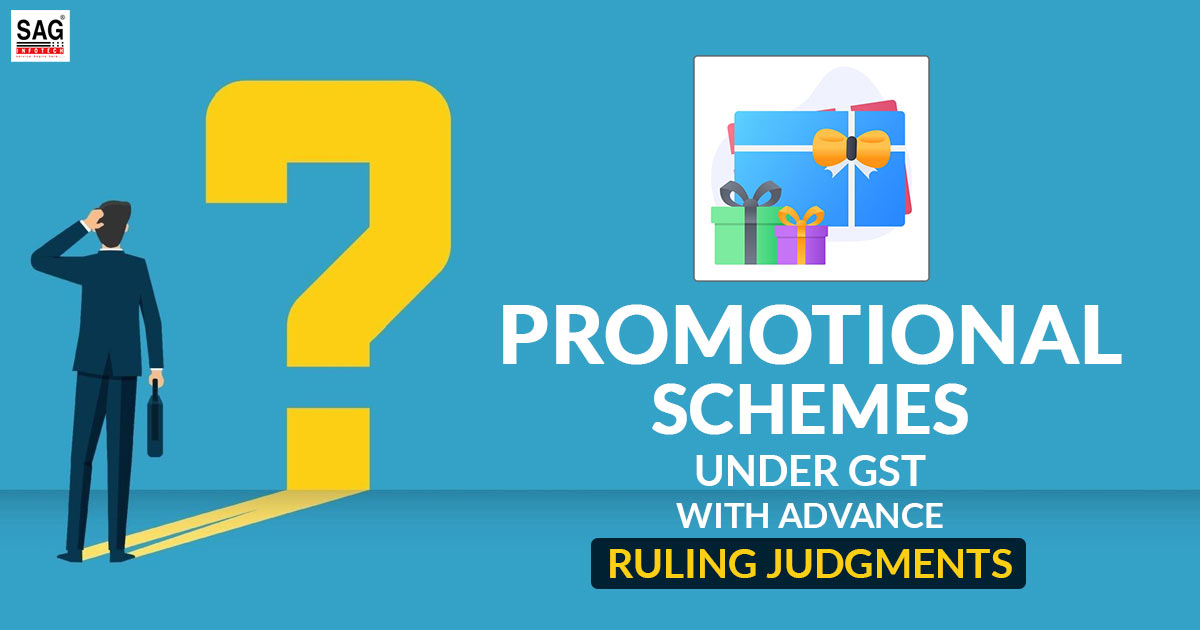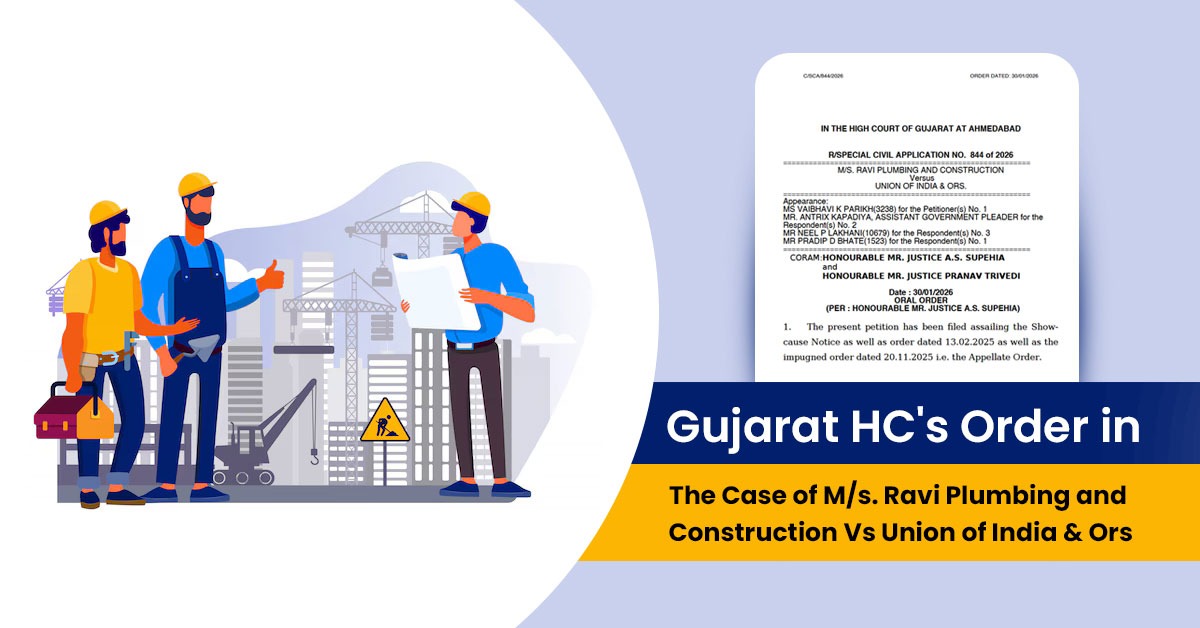
Businesses nowadays are implementing fresh and creative promotional strategies to draw in clients. Making room for a new firm or even surviving in the market has become difficult due to growing competition. But under the indirect tax regime, tax implications have been a contentious issue and are crucial for the implementation of such schemes.
The availability of input tax credits (ITCs) for taxes paid on purchases made for promotional schemes is one of the key concerns surrounding these types of promotions. Although the Central Goods and Services Tax Act, 2017 (the CGST Act) defines the term “business,” there is no clear standard to determine whether an activity is carried out “in the course or furtherance of business.”
GST KA AAR Judgment Related to Gift Cards & Subscriptions
The advance decision in the M/s. Myntra Designs Private Limited (Myntra) case is a significant illustration of this legal oddity. Myntra has requested an early decision on the availability of ITC on gift cards and subscription packages bought from outside merchants. By offering loyalty points to clients who meet specific requirements, Myntra intended to operate a loyalty program. Customers can exchange these non-transferable reward points, which have no monetary value, for gift cards and subscription plans.
The Karnataka Authority for Advance Ruling (AAR) determined that using loyalty points to purchase certificates from Myntra equates to giving away vouchers, which is prohibited under Section 17(5)(h) of the CGST Act, and suggests that the vouchers are given to the consumers for free.
Now, in a corporate sense, any action that grows a company, such as marketing and promotion plans, would be considered to be in the course of doing business. In the current situation, launching a loyalty program where customers can exchange loyalty points for coupons and subscription plans is essentially a marketing initiative to promote the Myntra e-commerce platform, which would help to increase the commission earned by Myntra through supplier listing and broaden the customer base.
In the current situation, launching a loyalty program where customers can exchange loyalty points for coupons and subscription plans is essentially a marketing initiative to promote the Myntra e-commerce platform, which would help to increase the commission earned by Myntra through supplier listing and broaden the customer base. The gift certificates and subscription plans are neither gratuities nor acts of kindness.
Read Also: Totally Solved! GST Taxability on Vouchers with Current Rate
Since the offer does not apply to every client and needs customers to complete terms and conditions in order to be eligible to participate in the loyalty program, it does not fall within the definition of a “gift,” which is anything that is given unconditionally. The vouchers and subscription packages are neither a gift nor a generous gesture.
The offer is not available to every customer and needs a quid pro quo from consumers to complete the terms and conditions for becoming eligible to join the loyalty program, therefore it does not qualify as a gift. As a result, the aforementioned Ruling has entirely neglected the reason behind the issuing of vouchers and subscription packages, which are offered to clients in the course or advancement of business operations, and not as a ‘gift’.
TN GST AAAR Judgement GRB Dairy Foods
Furthermore, ITC of products and services purchased for corporate promotional plans has been disallowed in a number of advance rulings on comparable problems. Gifts or awards given without consideration, even when offered for sales promotion, do not qualify as inputs for the purposes of ITC, according to the Appellate Authority for Advance Ruling (AAAR), Tamil Nadu, in the matter of GRB Dairy Foods Pvt Ltd.
MH GST AAR Judgement for Sanofi India Limited
The Maharashtra AAR ruled in another case involving Biostadt India Limited that the promotional campaign could not be regarded as a contractual duty and was instead a “gift” because no agreement had been signed by the clients. The Maharashtra AAR ruled in another case involving Biostadt India Limited that the promotional campaign could not be regarded as a contractual duty and was instead a “gift” because no agreement had been signed by the clients.
However, it is also noteworthy in this context to draw attention to another Maharashtra AAAR judgment in the matter of Sanofi India Limited, where no advance ruling could be made because of disagreements among the members.
The promotional scheme was created with the sole intention of advancing the business, driven purely by commercial intention, according to one member (SGST), who upheld the AAR’s decision, opining that the goods distributed free of charge are in the nature of gifts.
The other member (CGST), who ruled in favour of the appellant, set aside the AAR’s decision, categorizing the goods and services purchased as “input” and “input services,” respectively.
Types of Promotional Schemes
The aforementioned decisions make it clear that conventional promotional schemes may be roughly classified into two types. First, target-based promotional programs, where rewards are offered when certain sales objectives are met; and second, free promotional giveaways are used as a marketing gimmick.
Due to ambiguity in the legislation, ITC has been regularly rejected by the Authorities in both of these types of schemes. Additionally, it is seen from the examination of the Myntra case that there is a promotional program that differs from those provided by traditional firms.
Under this program, clients receive points for each purchase they make, which they can then use to purchase subscription plans and vouchers. There is no requirement to meet sales goals, and no things are given out for free. Customers must make purchases in order to accrue points.
Because the term “Gift” is not defined by GST legislation, the situation is completely perplexing. Therefore, reference to other laws, such as the Gift Tax Act, in terms of which Gift is a “transfer by one person to another of any existing movable or immovable property made voluntarily and without consideration in money or money’s worth”.
As a result, ‘Gift’ is a voluntary act that does not comprise consideration. Furthermore, there is no contractual obligation attached to such gifts, which might take the form of vouchers, points, or even free items in some situations. Furthermore, it is crucial to remember that the sole need for an input or input service under GST legislation is that it be utilized or planned to be used by a supplier in the course or advancement of business.
There is little question that products or services used for marketing campaigns are intended for the “company” or, more specifically, for expanding the business, and they are therefore considered to be used “in the course or advancement of business.”
Therefore, it is completely unjustifiable to refuse an ITC for tax paid on such items or activities on the grounds that they are provided for free, that there is no output tax on such items or activities, or that there is no agreement in place between the parties, especially with the prevalence of online marketing strategies today. Vouchers, loyalty points, etc, goods and services must be considered “inputs” and “input services,” on which the businesses should be entitled to claim ITC.
CBIC GST Circular
The Central Board of Indirect Taxes and Customs (CBIC) has released a GST circular that clarifies the factors of taxability, valuation, and availability of ITC in the supplier’s hands in regard to a few promotional programs in view of the current uncertainties on the subject.
However, the Circular released by CBIC is not enough to cover all promotional plans taking into account the various types of enterprises in today’s dynamic business climate where companies adopt innovative means of advertising their company.
The availability of ITC on costs paid for such promotional efforts should not be restricted in line with current trends, and promotional schemes should be analyzed subjectively with the goal of their implementation in mind.
Denial of ITC raises the burden on the company and drives up the price of goods or services, with customers ultimately bearing the brunt of these costs. As a result, the GST authorities must approach this matter with caution.









